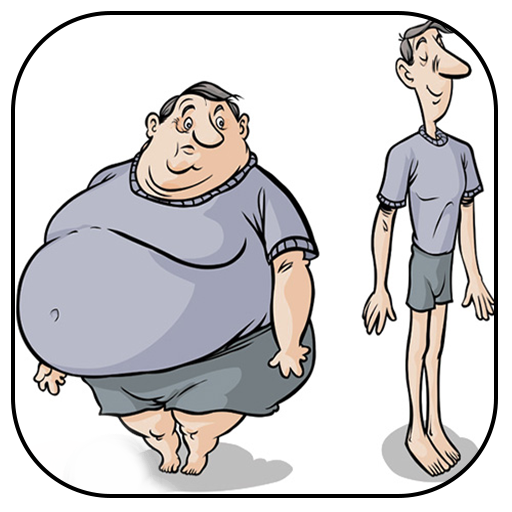How Not to Lose Weight (part 1)

You’re probably familiar with BMI (Body Mass Index), but you may not be aware that it’s an outdated measurement. It was invented in the 1830s by a Belgian astronomer using calculations involving weight and height. But this formula doesn’t account for gender or the relationship between fat and muscle. So a track and field athlete can have an “overweight” BMI due to their muscularity while still being extraordinarily fit and healthy, for example. Similarly, a woman can have an underweight BMI if just 100 pounds, but she may be obese if her fat percentage is 30+ and she’s under-muscular, also known as “skinny obese.” In our book, we call this type “The Dieter.”
A man who says that his “weight is exactly what it was in high school,” who still feels tired and weak, may not be able to blame his exhaustion on aging. It’s more than likely that, over time, he lost 20 pounds of muscle and gained 20 pounds of fat. He’s a “Scale Watcher.” There are 11 other types detailed in The Happy Body: The Simple Science of Nutrition, Exercise and Relaxation (pages 83-96); we invite you to revisit this material and determine which best describes you.
The Happy Body Program of weight loss, or what we call the Food Plan, take into consideration both metrics: IBW (Ideal Body Weight), which is just a number showing on a scale, and IBP (Ideal Body Proportions) which is the ratio between body fat percentage and muscle mass percentage. By practicing the weight training-based exercises and following the food plan, you ensure that you’re changing your body composition in a healthy way, one that eliminates fat while maintaining muscle.

Here’s a quick summary of all the wrong ways to lose weight:
- If you lose weight only by dieting that is, without exercising, you will lose muscle, which will make you weaker. Eventually, you must eat to recover your strength, and then you will regain the weight you lost, if not more. However, the weight you regain will be fat, not muscle, which you can never rebuild without exercising.
- If you lose weight only by strength training, your muscles will become sore and inflamed, which will exhaust you. Eventually, you must stop exercising to heal yourself, and then you will regain the weight—again, with fat, not muscle.
- If you lose weight by dieting and endurance training, you will reduce your muscle size and convert fast-twitch muscle to slow-twitch muscle, which will decrease your metabolic rate.
Eventually, you will become weak and have to increase your food intake to recover your strength, and then you will regain the weight as fat. Worse yet, you will wear out your joints from the exercise and become inflexible, which may lead to chronic pain that forces you to stop exercising.
- If you lose weight by being anxious all the time, you never switch from the sympathetic nervous system, which burns lean body mass as energy, to the parasympathetic nervous system, which burns fat as energy. That will cause loss of muscle mass and a reduced metabolic rate. Furthermore, because your sleep will be restless, you will not recover your energy at night. Also, your hormone, cortisol, level will increase causing stiffness and pains in the body. Eventually, you will become exhausted, stop exercising and dieting, and regain the weight as fat. That can lead to chronic fatigue.
- If you lose weight by chemical means—such as diet pills, carb blocker pills, fat burner pills, herbs, teas, or shakes, which artificially stimulate your metabolic rate or suppress your appetite—the effects won’t last forever and in the long run, do more harm than good. Eventually, you will have to discontinue using these chemicals to avoid undesirable side effects such as high blood pressure and heart attacks, and then you will regain the weight as fat.
- If you lose weight by dehydrating your body such as in a spa with heat or body wraps, the loss of weight will only be temporary because the body will demand to be rehydrated, and then you will regain the weight as water.
- If you lose weight by surgical means such as liposuction, coolsculpting or stomach stapling without also changing your diet and lifestyle, you will eventually regain the weight as fat.
For the next blog, we’ll look at the elements of The Happy Body that ensure that practitioners don’t fall into any of these traps, but instead use the healthiest, most sustainable methods that can still incorporate their favorite foods.
